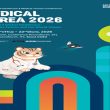Congress to break the silence around incontinence, reduce stigma, and bring practical solutions to patients
Nearly one in four women across the GCC live with urinary or fecal incontinence—a condition often hidden by stigma that quietly affects work, family life, daily wellbeing, and spiritual routines, and is further compounded by rising rates of diabetes, obesity, prostate issues, and neurological disorders. Addressing this growing health concern, from 17–20 September 2025, Abu Dhabi will host the first-ever Middle East urological conference uniting the International Continence Society (ICS) and the Emirates Urological Society (EUS).
ICS-EUS 2025 will bring together global and regional experts to showcase the latest innovations in continence care, champion patient-first approaches, and promote prevention, holistic wellbeing, and culturally sensitive treatment across the region.
The four-day conference is a must-attend for urologists, gynecologists, geriatricians, physiotherapists, nurses, allied health professionals, and anyone committed to advancing continence care in the GCC. Participants will gain hands-on experience through interactive workshops, expert-led roundtables, and cutting-edge lectures—equipping them with knowledge they can immediately apply to improve patient outcomes.
“ICS-EUS is more than a scientific meeting—it’s a chance to break the silence around incontinence, reduce stigma, and bring practical solutions to patients’ lives,” said Dr. John Heesakkers, General Secretary of ICS.
Delegates will also explore the digital revolution in continence care, from AI-driven diagnostics and mobile monitoring to personalized treatment plans. EUS will host four hands-on workshops and four expert-led roundtables, covering key urology sub-specialties including Andrology, Urolithiasis, Uro-Oncology, and Urotechnology. These sessions provide participants with practical mentorship alongside scientific learning.
Dr. Yasser Saeedi, President of EUS, added, “ICS-EUS 2025 offers a unique opportunity for clinicians to gain insights, exchange best practices, and connect with both regional and international peers.” Research shows overweight women face a 35% higher risk of urinary incontinence, with obesity nearly doubling the likelihood. In the UAE, nearly 30% of adults are obese and over 17% live with diabetes, further aggravating the incontinence burden.”
The event is accredited with 28.5 European CME credits and 23.5 CPD hours. GCC attendees are eligible for a 25% registration discount and a Buy One Get One Free offer on EUS workshops until 7th September 2025.









